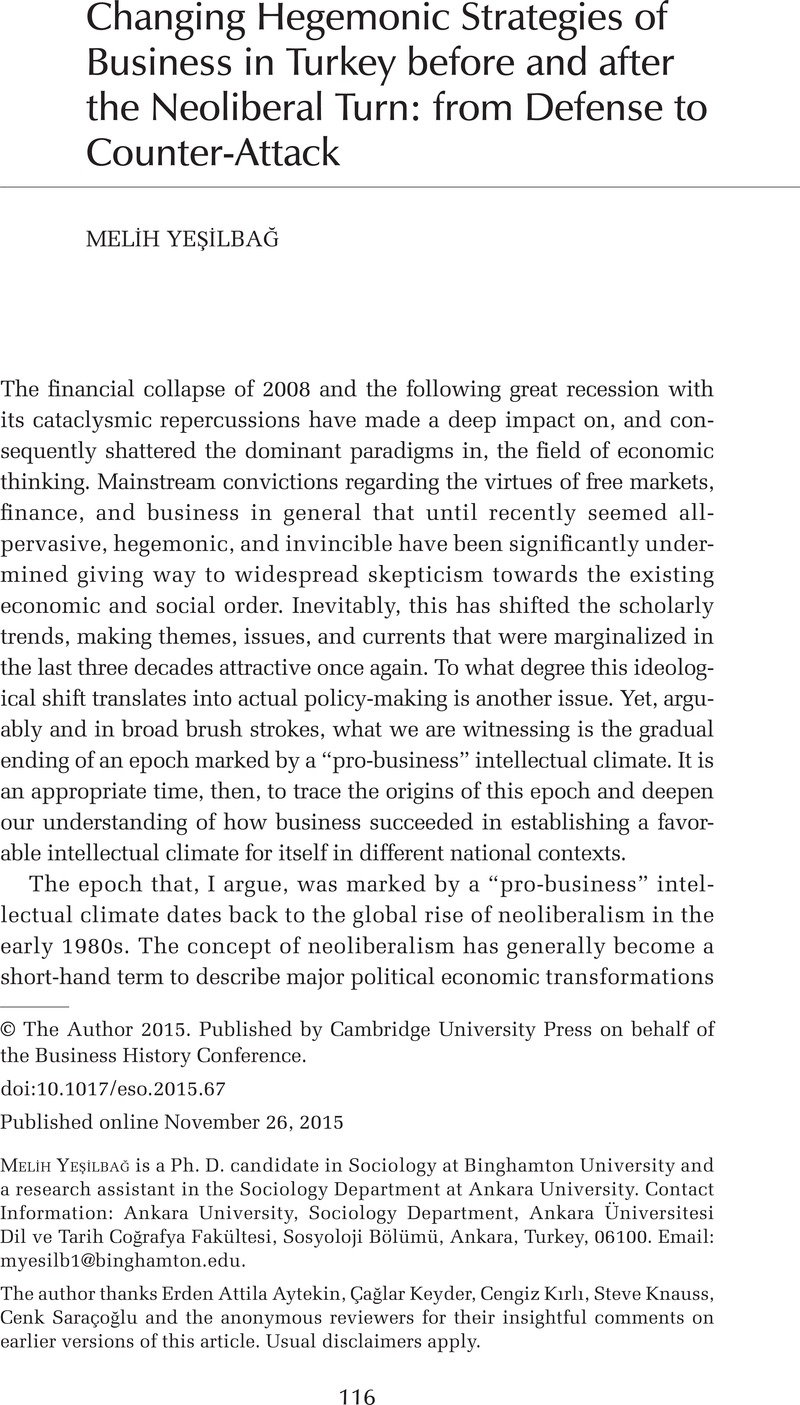Crossref Citations
This article has been cited by the following publications. This list is generated based on data provided by Crossref.
Wuokko, Maiju
2021.
The curious compatibility of consensus, corporatism, and neoliberalism: The Finnish business community and the retasking of a corporatist welfare state.
Business History,
Vol. 63,
Issue. 4,
p.
668.



